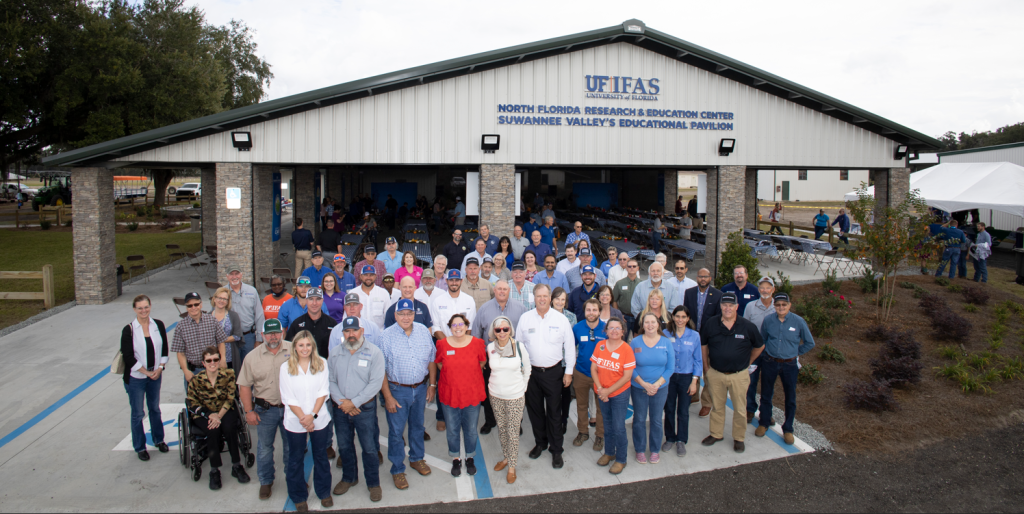The land-grant mission develops and extends science-based knowledge from the university to individuals, businesses and communities across the state. Fulfilling this mission for the communities of the Suwannee River Basin is the focus of the UF/IFAS North Florida Research and Education Center Suwannee Valley (NFREC-SV) in Live Oak, and with generous community support, a new educational pavilion is now the centerpiece of the center.
Roots in Community
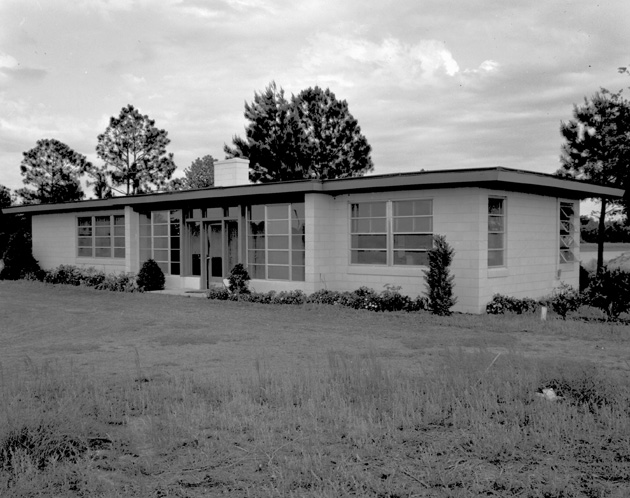
In 1947, legislation enabled the creation of the Suwannee Valley Experiment Station. Community was integral in the creation of the station, which relied upon local farmers opening their land for studies on pasture management and corn fertilization. In 1953, a 300-acre tract was purchased to establish the station, and it has supported various agricultural industry needs throughout the decades, including swine, nematology, small farms, agribusiness, vegetable crops and more.
During the late 1980s, efforts shifted to support alternative crops for agronomic farmers in the Suwannee Valley region. Research and educational demonstration efforts expanded to include new vegetable crops, plastic mulch, drip irrigation, fertilization, economics, pest control, post-harvest technologies and hydroponics. Field days have always been popular at the center as they open the farm to local farmers and community members to learn from the expanding grant-funded research projects.
Research and Education Efforts Expand
Over the last decade, research and Extension projects at the center have grown significantly with new meetings, new field days, new tours and new events for education and engagement. To accommodate groups of farmers and community members, the center transitioned the farm’s pole barn into a makeshift pavilion for events. But moving equipment and supplies in and out of the pole barn became a time-consuming task as event frequency increased, and it soon became clear this arrangement was hindering the center’s efforts.
During a meeting of the NFREC-SV Advisory and Visioning Committee, the need for an educational pavilion became a focal point of discussion. Recognizing recent investments from UF/IFAS for various upgrades to facilities and equipment, and the impact for agriculture and communities in the region, local leaders committed to making the investment needed to bring this new outdoor educational space to fruition.
Community Support Grows
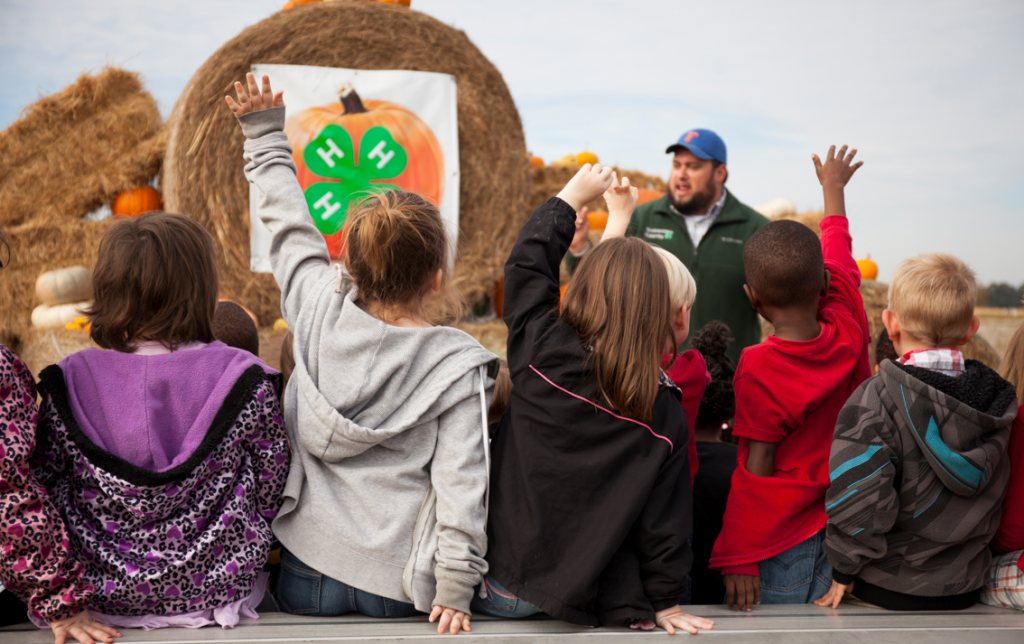
Ernest Sellers, a member of the NFREC-SV committee and the UF/IFAS Advancement Council (formerly SHARE Council), sparked the community’s support for construction of the pavilion. It was stakeholders’ turn to help raise the funds to build the pavilion, Sellers declared, and he committed the first donation.
“Let’s meet for lunch tomorrow and plan our fundraising strategy,” Sellers told Bob Hochmuth, assistant center director and NFREC-SV lead.
The campaign took shape through the work of committee members, stakeholders, the UF/IFAS Advancement team and the UF Foundation.
“It was incredible meeting with potential donors to share our vision for the center, and the impact this project could have on reaching even more community members,” Hochmuth said. “It was the most humbling professional experience in my career to see how much support there was for this project.”
One farmer at a time, all giving the same answer, they would certainly help with a donation. Hochmuth credits the involvement of the local county farm bureaus and the Florida Farm Bureau Federation with driving the project over the finish line. Both directly contributed and championed the project among local members. Within two years, 80 stakeholders had contributed $300,000 to build the pavilion.
Building Community Impact
As the project took shape, excitement grew, and it became clear stakeholders were not looking for just another pole barn.
Instead, the thoughtful design of the 4,200-square-foot pavilion has created a flexible outdoor space that is both attractive and functional for a variety of programs.
On November 18, 2021, the center hosted its first event under the educational pavilion, a ribbon cutting ceremony with the stakeholders who made the original dream a reality. The value placed in the facility is evidenced by the ongoing involvement and investment from the community.
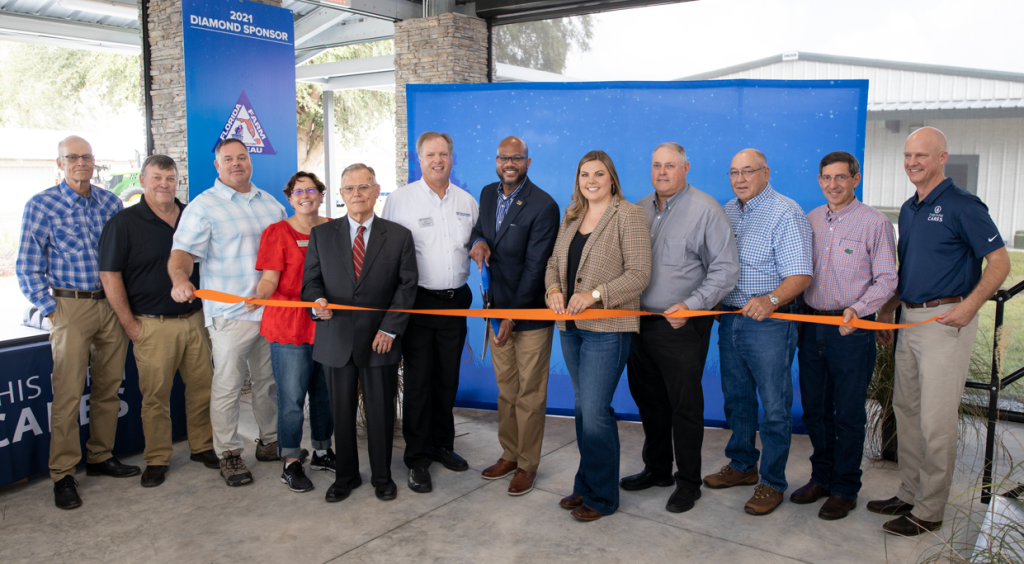
The pavilion has allowed the NFREC-SV to double the number of educational events held at the center from about 60 to 70 events and programs annually to now at least 125 events per year. These programs bring in well over 5,000 attendees annually from across the Suwannee Valley region, statewide and beyond.
The center continues to look forward to how they will build on this success to further serve their community. Research and outreach currently focus on water quality, nutrient management, agronomic crops such as corn and peanuts, specialty crops and plant breeding.
Video: NFREC Celebrates its 100th Anniversary
Sellers recently provided funding to kickstart the process for the next phase of improvements: a new entrance way and parking area to support the increase in welcomed traffic to the center. Nutrien has also partnered with the center to fund enhancements like the recent installation of TV monitors to improve visual presentations within the pavilion.
The research and Extension efforts of the NFREC-SV in Live Oak are advancing agriculture and natural resource protections while generating a positive economic and educational impact for the community. The community’s investment in the enter ensures these impacts continue in the decades ahead.
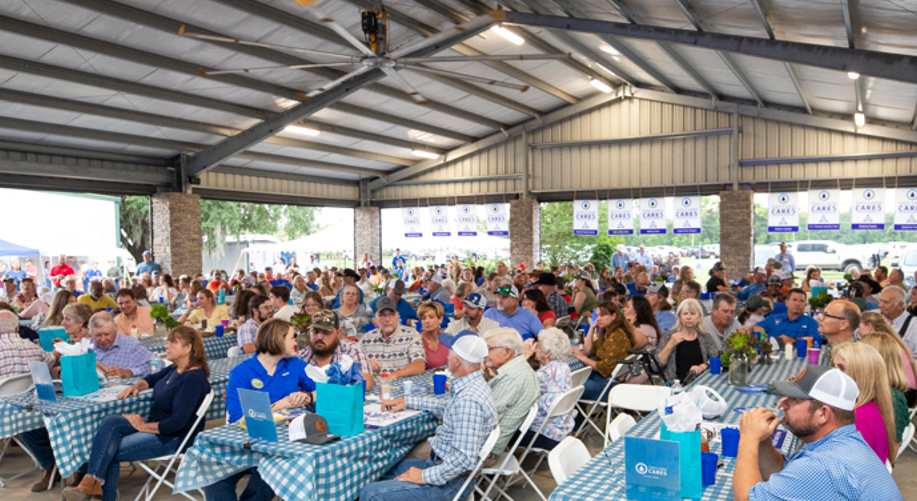
The “How it Happened” series showcases the transformational gifts made by donors to UF/IFAS during the University of Florida’s Go Greater Campaign. To learn more about creating your own impact through UF/IFAS programs with a charitable gift, please visit our website at give.ifas.ufl.edu or call the UF/IFAS Advancement Office at 352-392-1975.
 2
2
